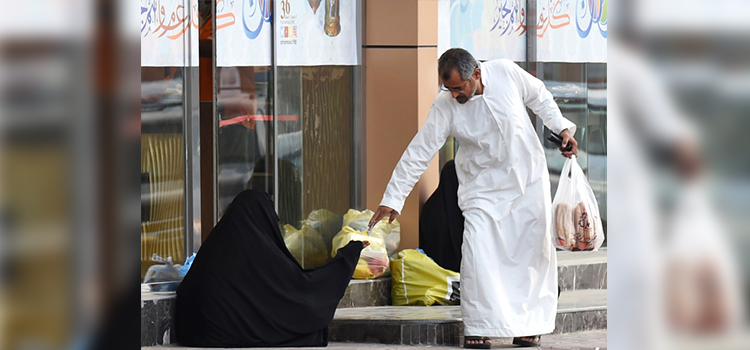Amid rising concerns over the growing number of Pakistani nationals involved in begging across the Middle East, authorities in Pakistan have ramped up efforts to curb this alarming trend. The Federal Investigation Agency (FIA) has been actively screening passengers at airports, off-loading individuals suspected of travelling abroad under the guise of tourism for illicit purposes.
According to a senior FIA official, this move is part of a broader strategy to address the issue, which has increasingly drawn the ire of Middle Eastern states such as Saudi Arabia, the United Arab Emirates (UAE), Iraq, Iran, Oman, and Turkiye. These countries have expressed frustration over the influx of Pakistani beggars, with a top official recently informing the Senate Standing Committee on Overseas Pakistanis that a staggering 90 per cent of beggars arrested in foreign countries are of Pakistani origin.
The crackdown has already seen significant results, with the FIA preventing the departure of thousands of passengers suspected of intending to engage in begging or other illicit activities. Over the past two and a half years, more than 44,000 passengers have been off-loaded from flights due to these suspicions.
FIA officials have identified that organised groups, often operating out of South Punjab districts, have been orchestrating these activities. These groups reportedly use airports like Multan as hubs, sending individuals abroad disguised as religious tourists.
Genuine travelers face increased scrutiny
However, this crackdown has also led to unintended consequences for genuine travellers. Director of FIA’s Gujranwala region, Qadir Qamar, noted that passengers with suspicious or fraudulent travel documents are being off-loaded, leading to delays and complications for legitimate visitors. Travel agents have expressed concern that stricter scrutiny, particularly in the UAE, where many Pakistani travellers transit for visa interviews to Western and African nations, could hinder lawful travel.
UAE authorities have responded by tightening their visa regimes, particularly scrutinising applicants’ financial standing. This has raised concerns that the enhanced vigilance could inadvertently impact those with legitimate reasons for travel, such as business or family visits.
Calls for stricter visa regimes in the Middle East
In response to the escalating situation, Pakistani authorities have urged Middle Eastern and Gulf countries to enhance their visa processing systems. A senior FIA officer suggested that these countries adopt more stringent measures, similar to those of Western nations, which require extensive documentation like bank statements, property records, and tax documents to ensure that travellers can support themselves during their stay.
Pakistan’s immigration staff at airports has also begun questioning frequent travellers to the Middle East about their professions, businesses, and bank accounts to assess the legitimacy of their travel. Those found to be suspicious are immediately off-loaded, preventing potential misuse of travel privileges.
Repatriation of criminals and crackdown on human trafficking
In addition to addressing the issue of begging, Pakistani authorities are also collaborating with Middle Eastern states to repatriate wanted criminals. In recent years, Punjab police have successfully brought back numerous outlaws, particularly from Dubai, who were wanted for serious crimes in districts like Gujrat, Gujranwala, Sialkot, Mandi Bahauddin, and Hafizabad.
The FIA has also intensified its crackdown on human traffickers, particularly in the Gujranwala, Gujrat, and Azad Jammu and Kashmir regions. This effort was significantly bolstered following a tragic incident last year when a boat carrying hundreds of Pakistanis sank near Greece. The FIA’s anti-human trafficking cell has since arrested around 200 suspects, including those involved in the Greek boat disaster.
To further strengthen these efforts, the Interior Ministry has elevated the FIA office in Gujranwala to a regional directorate, enabling more effective action against human trafficking networks and other criminal activities.
